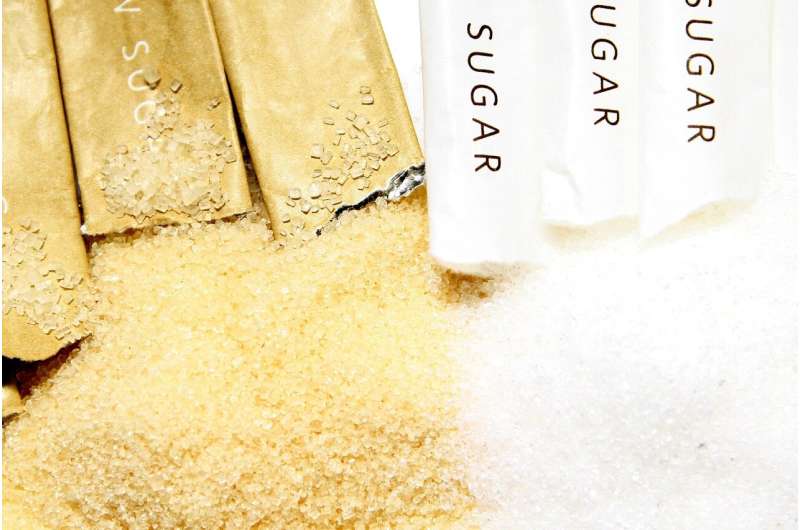Research into sugar-based plastics shows the shape of things to come

Researchers at the University of Birmingham, U.K. and Duke University, U.S., have described the exceptional strength and toughness of novel polymers made from sugars, and the chemistry underpinning their characteristics, in a study published in Angewandte Chemie.
The study examined two polymers based on isosorbide and isomannide that are produced by a recently disclosed method that use sugars as a starting point for synthesis. Both polymers have superior properties to conventional thermoplastic elastomers, and in addition are degradable and mechanically recyclable.
In a key finding, the researchers discovered that the polymer made from isosorbide displayed superior elastic recovery and toughness, which was shown to be a result of the stereochemistry of the sugar groups in the materials.
Using computer simulations and other experimental techniques, the researchers showed that the difference in elastic recovery results from the way that the sugar stereochemistry directs the network of hydrogen bonds between and within the long-chain molecules.
The researchers concluded that both polymers have high optical clarity, exceptional mechanical strength and extensibility, but the isosorbide-based polymer has superior toughness, due to its higher elasticity.
Professor Andrew Dove, from Birmingham's School of Chemistry, who led the research team, commented: "The long-term impacts of modern polymers on the environment are a significant concern. Isosorbide is a renewable feedstock alternative to petroleum derivatives for commercial polymer production. It is derived from plants, and, as one of the top 20 biomass sourced molecules, is available at a scale that is consistent with commercial production of bioplastics."
Duke University professor Dr Matthew Becker says that "most bio-sourced plastics have lacked the mechanical properties needed to compete in commercial applications and lose nearly all of their mechanical properties when reprocessed. The materials outlined in this paper change that paradigm".
A joint patent application has been filed by University of Birmingham Enterprise and Duke University, covering both the polymers, and the method of making them. The researchers are now looking for industrial partners who are interested in licensing the technology.
More information: Shannon R. Petersen et al, Ultra‐Tough Elastomers from Stereochemistry‐Directed Hydrogen Bonding in Isosorbide‐Based Polymers, Angewandte Chemie International Edition (2022). DOI: 10.1002/anie.202115904
Connor J. Stubbs et al, Sugar-Based Polymers with Stereochemistry-Dependent Degradability and Mechanical Properties, Journal of the American Chemical Society (2022). DOI: 10.1021/jacs.1c10278
Journal information: Angewandte Chemie International Edition , Angewandte Chemie , Journal of the American Chemical Society
Provided by University of Birmingham




















